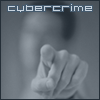Police hot on trail of computer crooks
Source: TRIBUNE-REVIEW
By David Conti
Date: December 08, 2003
 There's a little Big Brother in every personal computer, laptop and operating system produced today.
There's a little Big Brother in every personal computer, laptop and operating system produced today.
That's bad news for what police and prosecutors call a growing number of criminals who use computers to victimize people. It's good news for city police Detective Howard Ommert, who uses the technology to catch them.
"Every key stroke, everything you do on a computer, every page you view on the Internet, it's all stored somewhere," he said. "Finding it is the hard part."
Ommert spends his days chasing the footprints criminals leave in cyberspace and on hard drives. He is the only forensic computer examiner in the Pittsburgh Bureau of Police. And his services are in high demand
"There's more and more Internet fraud everyday," said assistant police Chief William Mullen, Ommert's boss. "And criminals are using computers for other types of crimes, too. It's becoming overwhelming. He's one of the hardest working people in this building."
The Department of Justice's Bureau of Justice Statistics does not yet track figures for computer crime. But those who have worked the cases for the past several years say they have no doubt it's a growing problem.
"We see more computers being used in every type of criminal activity," said FBI Special Agent Bill Shore, who heads his office's computer crimes squad.
"I have no doubt it's increasing," said deputy District Attorney Chris Connors.
So far this year, Ommert has handled 72 cases, compared to a handful when he started his current assignment in 1999. In his small office in the city investigations branch in East Liberty, two dozen computers, hard drives, laptops and other gadgets line the walls and fill limited floor space.
Ommert talks of the challenges of obtaining search warrants for digital information that does not exist on paper and of sorting through thousands of megabytes of data on a "thumb drive" the size of a watch. He spends hundreds of hours in training sessions, learning about the newest technology and ways to crack it.
"The laws get interesting and confusing when it comes to how you legally get information from computers or from Internet service providers in other states," said Connors, who handles some local prosecution of cybercrimes. "You may have a warrant to look for evidence of fraud on a computer, but if you come across child porn, you have to change gears and get a different warrant."
Ommert can cite several examples of his investigations taking unexpected turns. In July 2002, police received two reports from people out-of-state who said they'd paid for X-Box video game systems -- to be shipped from a Pittsburgh address -- that never arrived.
The sales were done over the auction Web site Ebay. Howard got a search warrant for the seller's Internet account, and found 20 more complaints. With another warrant, he got a name and address for the seller. Then he had to get the financial records of all 22 victims, who were spread out from Canada to Hawaii.
Yet another warrant gave him access to the seller's computer. Several weeks of analyzing the hard drive of an 18-year-old Northview Heights man uncovered records of the transactions. It also turned up four stolen identities, Ommert said.
"That's one investigation that turned into 22 fraud cases plus several identity thefts," Ommert said, holding up a four-inch-thick file. "And it took eight months."
Despite the challenge of investigating the cases, Ommert's satisfaction shines through in a job that combines his favorite things in life -- working on computers and catching bad guys.
"Technology is an amazing thing when it's used for good purposes and a dangerous thing in the wrong hands," he said.
Ommert, 39, was bitten by the technology bug as an intelligence analyst in the U.S. Army in the early 1980s. He did more computer work as an undergrad at Penn State. And shortly after joining the police department in 1995, he began a master's program in public administration with a focus on information systems at Carnegie Mellon University, which he recently finished.
"He was setting up databases for several squads in 1999 when we decided to start a computer crime unit," Mullen said. "He was a perfect match."
Ommert knew computer operating systems and was trained as a police officer in evidence collection and forensics. He had to spend weeks in several different private and public training schools to learn how the two come together. He's currently attending a two-week FBI certification program in computer evidence analysis.
"There are many ways to recover evidence from computers and their hard drives," Ommert said. "I learned that early on. The challenge is keeping up with new technology. Operating systems change every few years. Digital media is cheaper and can hold much more information. We're constantly catching up."
An emphasis on cooperation among the small, but growing, group of cybercops in the area has helped limit the learning curve.
The Pittsburgh office of the FBI, which has run its own computer crimes squad since 1996, set up a task force in 1999, which Shore heads.
"We bounce a lot of cases back and forth," Shore said about squad members, Ommert, a state police squad and Allegheny County police. "We assist on each other's warrants, because they are complicated."
"Sometimes I come across an operating system I haven't seen and I ask the others," Ommert said. "Sometimes we have to test the program on another drive and see what it leaves behind."
Whether it's a sexual predator exchanging child porn, a thief stealing identities across the Internet, or a drug dealer or madam who keeps records of clients in a database, the computer program always leaves some evidence behind.
"Putting someone behind the keyboard is the tough part," Ommert said.
www.pittsburghlive.com
^macro[showdigestcomments;^uri[];Police hot on trail of computer crooks]